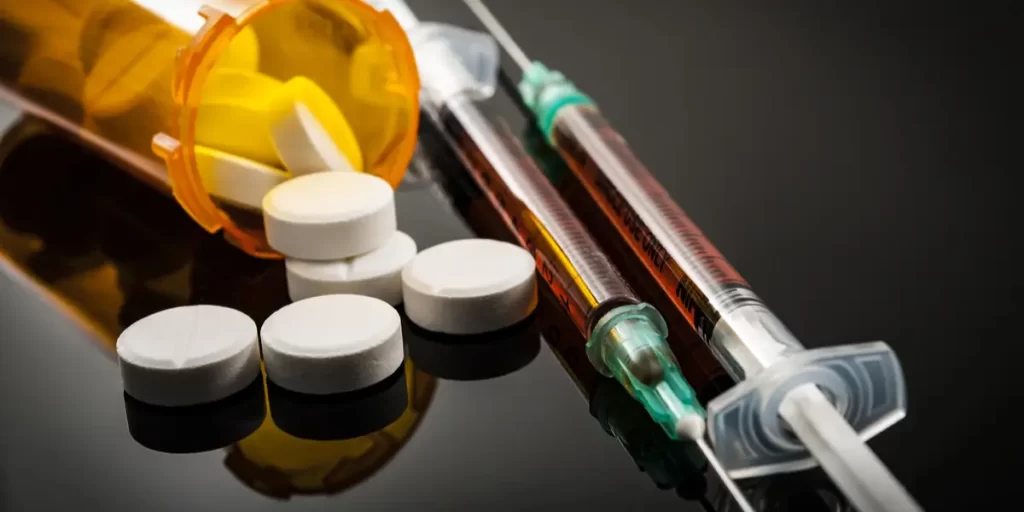Methadone Addiction Treatment & Rehab in Washington
Written by Renee Deveney
& Medically Reviewed by Eric Patterson, LPC
Medically Reviewed
Up to Date
Last Updated - 6/17/2022
View our editorial policy
Methadone is a synthetic opioid that is much longer acting than other opioids like hydrocodone or oxycodone are. Due to its long-lasting effects, it is often used for the treatment of opioid addiction to make opioid withdrawal more comfortable for a person experiencing withdrawal symptoms. However, because methadone is an opioid, it is still possible to become dependent or addicted to it.
Because of those risks, methadone is only to be administered by registered opioid treatment programs. In Washington in 2017, 119 of 818 deaths due to opioid overdose were associated with methadone use, almost 15%. Compared with data from 2007, the percentage of methadone-associated overdose deaths decreased, but that decrease only exists because the number of overdose deaths associated with opioids besides methadone increased significantly.
Methadone Treatment
Opioid use, especially long-term use, alters certain pathways in the brain, like those associated with pain and pleasure. Even though methadone is often used as a treatment to help overcome opioid addiction, it is possible to become addicted to methadone too. Methadone withdrawal is similar to that experienced with other opioids, and symptoms include the following:
- Runny nose
- Sweating
- Chills
- Shaking
- Muscle cramps
- Nausea
- Diarrhea
- Vomiting
- Anxiety
- Agitation
Withdrawing from methadone in a facility that provides medical supervision during detox can help decrease the discomfort of withdrawal and provide a safe place during the detox process.
Although methadone is usually only administered in a professional setting with close supervision, it is still possible to overdose on methadone. Often an overdose requires hospitalization. Sometimes people begin methadone withdrawal and detoxification while in the hospital. Sometimes a person may make a planned decision to detox from methadone in a professional opioid treatment facility. Better recovery outcomes are associated with professional inpatient or outpatient treatment after the initial detox process.
Inpatient and Outpatient Methadone Addiction Treatment
In most cases, receiving methadone addiction treatment services from a qualified provider allows for better coordination of care. Detoxing from methadone at a behavioral health center allows for specialized care in addition to basic medical care during the early recovery period. Counseling and other behavioral health assistance may be provided while detoxing at such a facility.
Whether someone chooses inpatient or outpatient treatment depends on many factors, including:
- Financial access
- Geographic location
- Existence of prior opioid detox/treatment
- The severity of methadone use or abuse
People with recent overdoses, suicidality or methadone relapse after previous treatment might require higher levels of care. Both inpatient and outpatient programs offer similar services, including the following:
- Individual and group therapy
- Therapy and medication for mental health disorders
- Recreational therapy
- Group activities and peer support
In residential treatment, people live in a controlled, safe place with minimal stress and substance use triggers. At some facilities, nutrition assistance and meal planning are available in addition to various recreational and wellness activities.
Methadone Addiction Treatment Centers in Washington
Medical professionals can help someone determine the level of care that is ideal. Several choices for methadone addiction treatment are accessible in Washington. Upon making a decision regarding a treatment facility, common considerations are:
- Accessibility (both financially and geographically)
- State licensure
- Availability of aftercare planning and support
- Recommendations from past clients
- Variety of services provided
- Ability to treat co-existing behavioral or medical conditions
Integrated treatment is associated with recovery success, and involves treatment for substance use and mental health disorders at the same time, rather than treating them separately. People with both conditions can benefit from receiving mental health care during substance use treatment.
How Much Does Methadone Rehab Cost?
Inpatient treatment is usually more expensive than outpatient treatment because the level of care is higher. Inpatient facilities provide around-the-clock care, along with meals and housing. It is important for each person to receive the appropriate level of care the first time around so that additional treatment is not necessary.
Does Insurance Cover Rehab for Methadone Addiction?
Each person’s insurance plan varies. Different insurance plans cover certain, or all, aspects of therapy so people interested in addiction treatment should consult with their insurance provider to learn the details of their plan. The Recovery Village Ridgefield accepts many insurance plans that cover both inpatient and outpatient treatment.
If you or a loved one are ready to take the first step toward a healthier future, call The Recovery Village Ridgefield today. Learn how personalized addiction treatment programs can address substance use disorders and any co-occurring mental health disorders.
Sources
DailyMed. “Methadone hydrochloride (oral concentrate).” December 19, 2018. Accessed May 14, 2019.
Henry J Kaiser Family Foundation. “Opioid Overdose Deaths by Type of Opioid.” Accessed May 14, 2019.
Timko, Christine. “Patient and Program Factors that Bridge the Detoxification-Treatment Gap: A Structured Evidence Review.” Journal of Substance Abuse Treatment, May 2015. Accessed May 13, 2019.
Kelly, TM and Daley DC. “Integrated Treatment of Substance Use and Psychiatric Disorders.” Social Work Public Health, August 26, 2013. Accessed May 13, 2019.
View Sources
DailyMed. “Methadone hydrochloride (oral concentrate).” December 19, 2018. Accessed May 14, 2019.
Henry J Kaiser Family Foundation. “Opioid Overdose Deaths by Type of Opioid.” Accessed May 14, 2019.
Timko, Christine. “Patient and Program Factors that Bridge the Detoxification-Treatment Gap: A Structured Evidence Review.” Journal of Substance Abuse Treatment, May 2015. Accessed May 13, 2019.
Kelly, TM and Daley DC. “Integrated Treatment of Substance Use and Psychiatric Disorders.” Social Work Public Health, August 26, 2013. Accessed May 13, 2019.
Authorship






